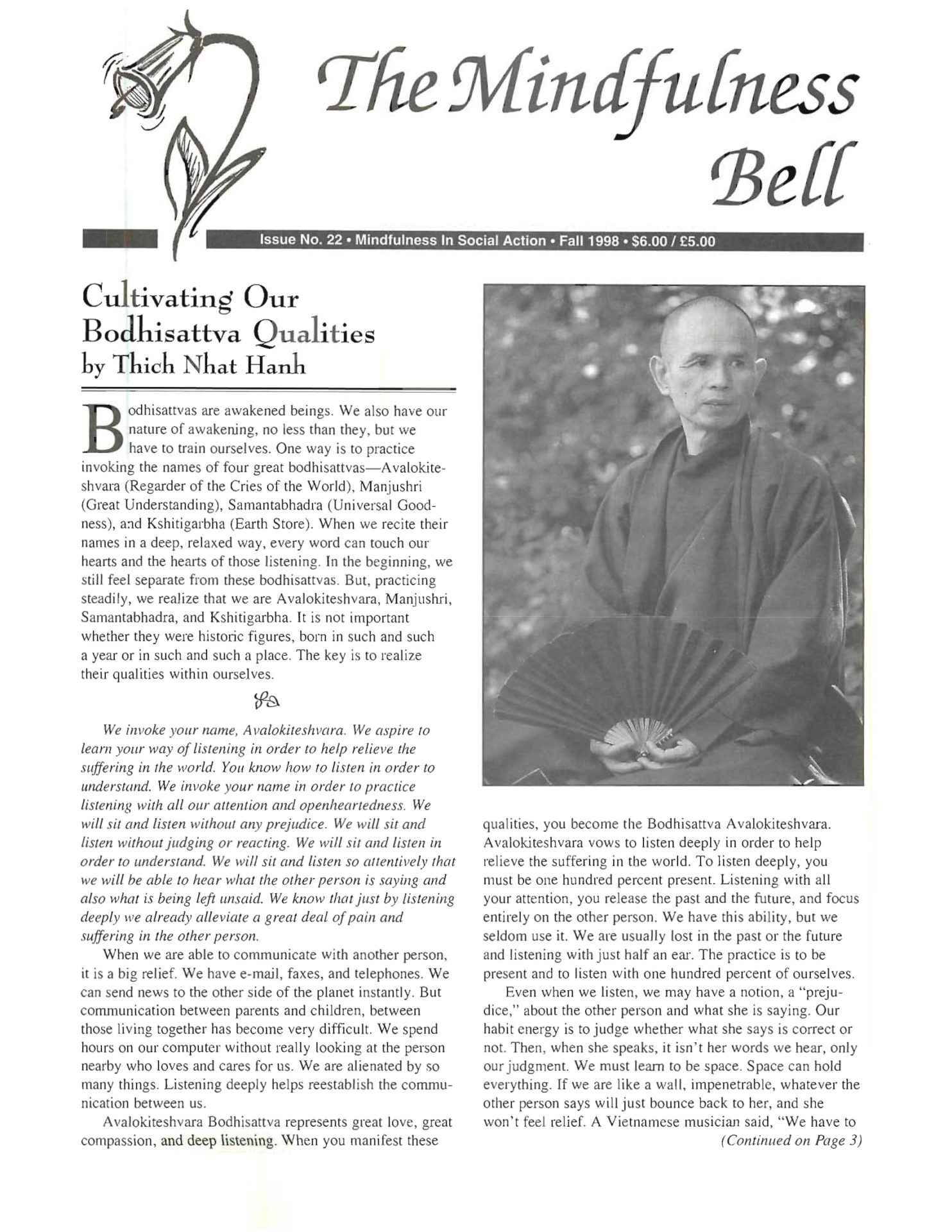
By Heidi Larsen
As Buddhism enters American culture, it sometimes seems self-centered and commercial. Teachings flow into practice centers, but nothing flows out. Only those of a certain income level can afford the books, tapes, retreats, and time to become “enlightened.” It’s refreshing, therefore, to read Thich Nhat Hanh’s teachings that speak of giving and receiving; of working out individual peace while interbeing as a community member; of accepting the prostitute and the Wall Street investor,

By Heidi Larsen
As Buddhism enters American culture, it sometimes seems self-centered and commercial. Teachings flow into practice centers, but nothing flows out. Only those of a certain income level can afford the books, tapes, retreats, and time to become "enlightened." It's refreshing, therefore, to read Thich Nhat Hanh's teachings that speak of giving and receiving; of working out individual peace while interbeing as a community member; of accepting the prostitute and the Wall Street investor, anger as well as love.
I am one of the poorer people who comes from the streets-with all the violence and exploitation that goes with it. People like me need to start at the beginning, learning to breathe, to walk, to accept ourselves unconditionally into the dignity of being that belongs to everything. Simple things like awareness of the body and emotions in the present moment are huge tasks for us, because so many traumatic memories are locked in the body and psyche. It can seem impossible. But, it just takes a lot of gentle acceptance, trust, respect, and a very long time-often a lifetime.
Many poor people have always been tossed around by outside forces. They have not experienced a sense of control over their own lives. Gaining a sense of control may be difficult for poorer people, because it also requires an end to a victim mentality and an acceptance of self-responsibility. Accepting responsibility for self means to accept all the pain, fear, and anger that are part of self.
How can a poor person feel control over their lives in the midst of hunger, violence, and rape? A sense of control means recognizing and accepting one's power of choice the basis of a sense of dignity. It is amazing how determined people find ways to exercise choice. I remember some hungry and homeless in a soup kitchen where I worked, declaring that they "never ate peas" or insisting that they had to re-wash a spoon which was not quite clean enough.
Everyone has the power of choice over their very core their breath, how they react to events, their patterns of thought. Isn't it strange that if you choose to fast, it is fairly peaceful, but if deprived of food by outside forces, you are filled with turmoil and fear? The events are the samebeing hungry-but the perception is different. Exercising conscious choice assures a measure of dignity.
The lower working-class and people of the street need Buddhism's lessons of conscious choice, dignity of being, and self-responsibility. Sangha members who can "afford enlightenment" should ask: "How can we make the Sangha and the teachings known and more approachable for people of less means?" Asking these questions is the practice of interbeing.
Heidi Larsen is an intern working with homeless children in Olympia, Washington.

